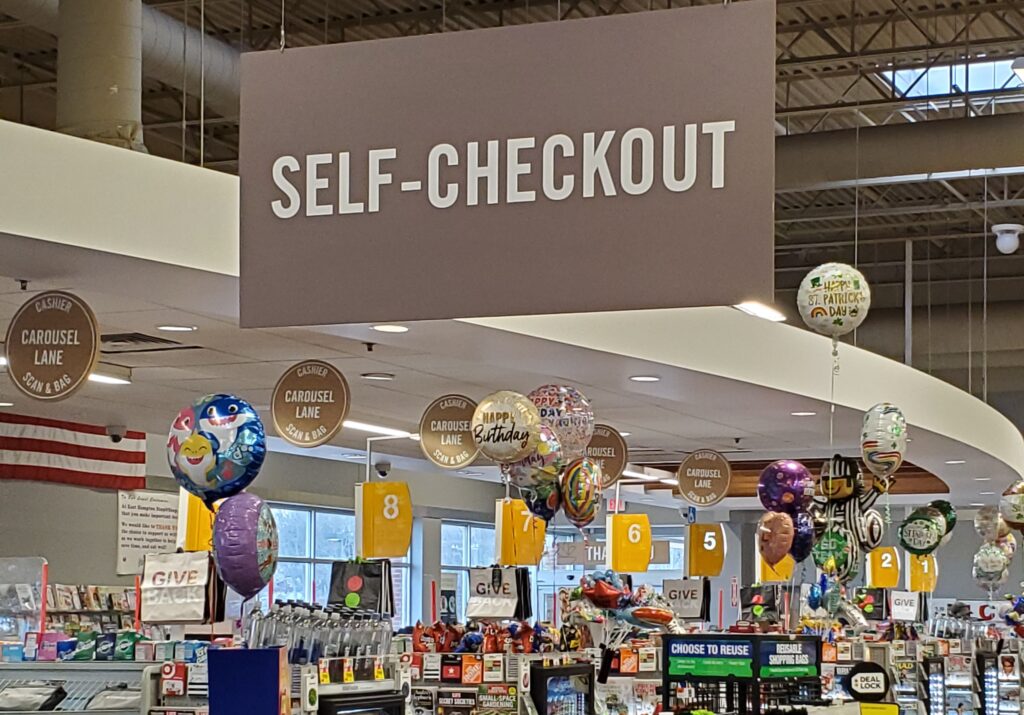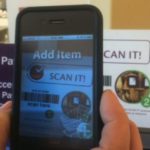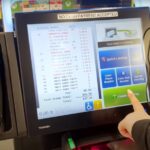
Some shoppers love self-checkouts for the convenience, others hate them for their hassles. Some retailers love them for the cost savings they can provide, others hate them for the losses they can cause. But no one has thought to do a scientific study to determine once and for all whether self-checkout’s benefits outweigh the drawbacks, until now.
In the final analysis, retailers are going to like self-checkouts only if their customers do – they’re unlikely to stand by the systems if enough customers reject them and refuse to shop there. So two researchers from Drexel University sought to find out whether self-checkout impacts grocery loyalty, and makes shoppers more or less likely to become repeat customers.
Their report, “Feeling rewarded and entitled to be served: Understanding the influence of self- versus regular checkout on customer loyalty,” is published in the newest edition of the Journal of Business Research.
While “many news articles have reported some concerns” about cashierless checkout systems, “no formal research has investigated the potential negative impact of self-checkout,” their study pointed out. So they conducted a series of studies to learn how self-checkout impacts shoppers’ decisions on where to shop, and what, if anything, can be done to change the naysayers’ minds.
“Our findings indicate that self-checkout systems, despite their advantages in terms of speed, ease of use, and cost reduction, can result in lower customer loyalty compared to regular checkout systems,” they concluded. That means they’re less likely in the future to return to the store offering self-checkouts.
When customers see other shoppers being served by cashiers, or envision other stores where they receive one-on-one service, the shoppers who participated in the studies were more likely to rethink whether they want to shop at stores with self-checkouts at all. This is especially true, the larger their order – shoppers with more than 15 items are even more likely to be dissatisfied with having to do the work of scanning and bagging themselves. Shoppers who disliked self-checkout cited the extra effort required, and their expectation that the store should be serving them.
But what if that extra effort could be spun into a positive? If stores could provide self-checkout users with rewards for their work?
“If customers are primed to think of the extra effort involved in self-checkout as a rewarding experience, their perceived loyalty to the store will be similar to those of regular checkout shoppers,” the study found. So “retailers should attempt to make the self-checkout experience more rewarding.” The researchers suggest “economic rewards” like free products or discounts, or “social rewards” like preferential treatment over regular checkout customers.
That’s similar to the view of one state lawmaker, who introduced a bill last year to make self-checkout rewards mandatory. Democratic state representative Megan Cotter of Rhode Island proposed new self-checkout rules for her state that, among other things, would mandate that grocery stores “pay the consumer a ten percent discount for self-service checkout where that checkout involves ten or more items.” As she explained at the time, “It seems only fair that if they are going to take on cashiers’ work, the customer should get something in return.”
That bill died in committee, after retailers strongly opposed it and made their feelings known. But they might consider rethinking their opposition, if they consider this study that says rewarding self-checkout customers now, could make the difference between keeping and losing those customers later.
Similarly, the study suggests retailers that have removed self-checkouts might want to consider whether that move might backfire and turn away shoppers who actually like it. “We recommend that retailers carefully consider the implications of installing or removing self-checkout systems based on their customer loyalty outcomes,” the study concluded. “Retailers can leverage our findings to provide a better shopping experience and foster greater loyalty among their customers.” In short, self-checkouts don’t have to be so polarizing. They can be positive for all involved – if they’re handled the right way.
Could this be the final word on self-checkout then? Unlikely. Just ask self-checkout manufacturer NCR. It recently released a new survey, declaring that “self-checkout continues to gain traction, with 43% percent of consumers expressing a preference for it over traditional checkout.” It’s a good thing that a survey about self-checkouts from a company that makes self-checkouts, shows how much shoppers love self-checkouts. “The reality is shoppers want more control over their checkout experience and self-checkout delivers that flexibility,” NCR Voyix Corporation CEO David Wilkinson said in a statement. “For retailers, self-checkout enhances operational efficiency in a time when many are struggling to retain staff and are combatting unprecedented levels of shrink.”
So a single scientific study may not end the debate over whether self-checkouts are a godsend for do-it-yourselfers, a scourge on society, or somewhere in between. But if it can give us a better idea about what shoppers and retailers like and dislike about them, we just might be able to reach a solution that everyone can agree on.
Image source: Coupons in the News















